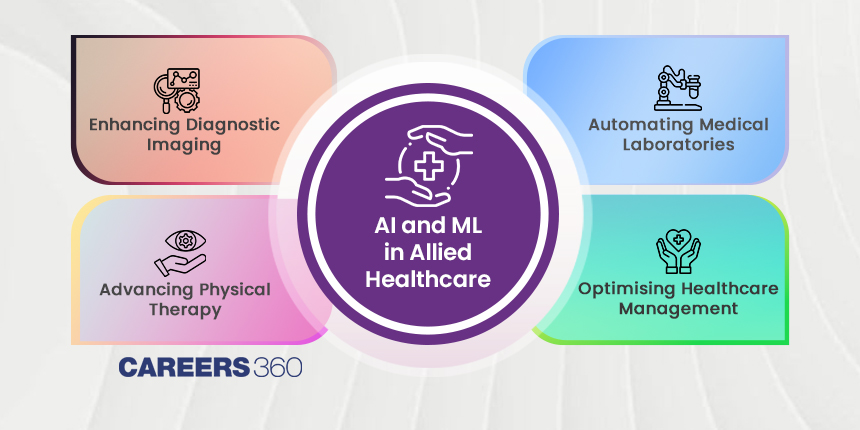AI and Machine Learning in Allied Healthcare: Advancements and Applications
Allied Healthcare includes various health professionals who support doctors and nurses by providing essential services. These services range from physical therapy and lab tests to medical imaging. They are an integral part of the healthcare team that ensures patients receive complete care.
Allied Healthcare professionals work in various domains such as hospitals, clinics, rehabilitation centres, and schools. Education and training for allied healthcare professionals are provided at certification, diploma, UG, and PG levels.
The role of allied healthcare professionals is increasingly important with the growing demand for healthcare services. Ageing populations and the rise of chronic diseases mean more patients need specialised care. Allied health professionals help meet this demand and play a key role in maintaining and improving public health.

Artificial Intelligence and Machine Learning in Allied Healthcare
Artificial intelligence and machine learning improve healthcare management by optimising scheduling, predicting patient flow, and managing resources. These technologies help allied healthcare professionals provide better patient care. AI and ML-enabled technologies also help reduce costs and improve the healthcare system's efficiency. Below, we have discussed various applications of AI and ML in allied healthcare.
Enhancing Diagnostic Imaging
AI and machine learning are revolutionising diagnostic imaging by significantly improving the efficiency and accuracy of various services. AI algorithms can highly precisely analyse X-rays, MRIs, and CT scans. It also helps to detect abnormalities that may be missed by human eyes. This technology speeds up the diagnosis process and improves patient outcomes.
Advancing Physical Therapy
In physical therapy, machine learning can personalise rehabilitation programmes based on data from patients' previous sessions and outcomes. AI-driven tools can monitor patients' movements and provide real-time feedback so that healthcare professionals can ensure exercises are performed correctly and effectively.
Automating Medical Laboratories
AI is transforming medical laboratories by automating routine tests and identifying patterns in data. This can forecast disease outbreaks and patient responses to treatments. This automation minimises errors and liberates laboratory professionals to concentrate on complex tasks.
Optimising Healthcare Management
Technologies like AI and machine learning can improve healthcare management by optimising scheduling and managing resources. These technologies help allied healthcare professionals provide better patient care. AI can automate repetitive tasks such as managing patient records and generating reports. AI-powered chatbots can also provide patients with 24/7 access to information and support.
Conclusion
AI and ML-enable technologies can revolutionise the healthcare sector. Time is not far from when we will see the use of AI and ML from the reception of hospitals to surgical rooms. This change from manual to automation will save a lot of time for healthcare professionals and help them provide more accuracy.